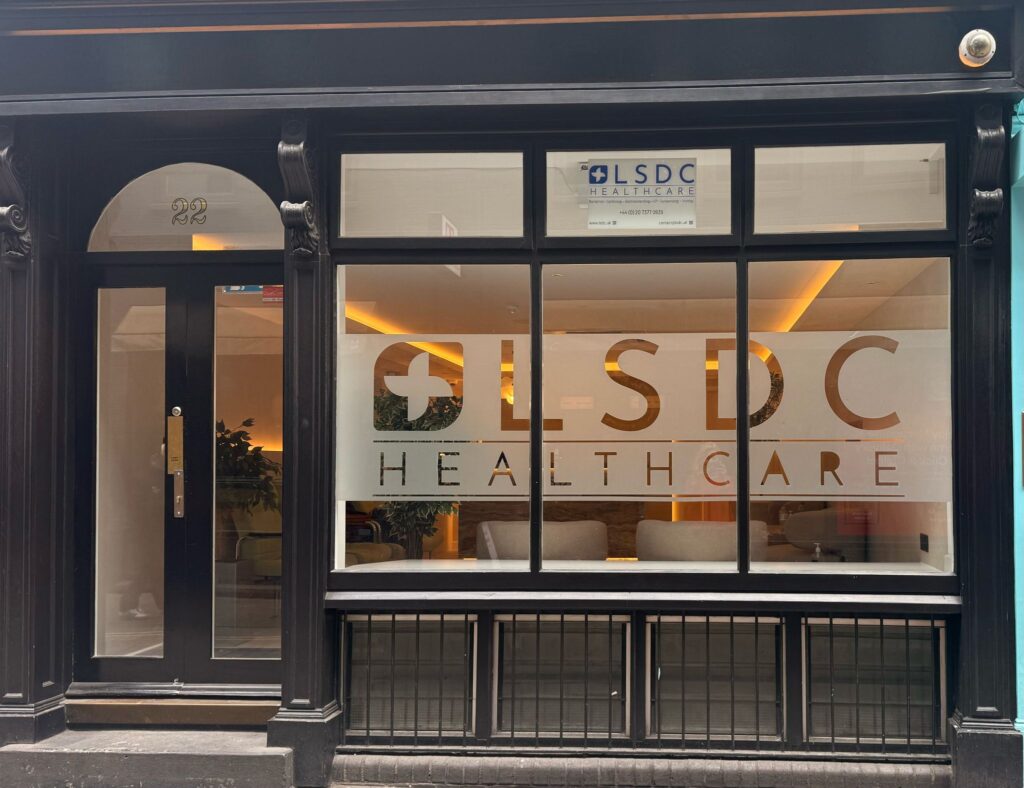Private Colonic Transit Study in Central London
At LSDC Healthcare, we offer advanced colonic transit studies in Central London, performed and interpreted by consultant gastroenterologists with expertise in motility and functional bowel disorders.
Located just two minutes from Liverpool Street Station, our clinic provides rapid access to specialist investigations for patients with chronic constipation, slow bowel transit, and motility disorders.
What Is a Colonic Transit Study?
A colonic transit study is a diagnostic test that measures how quickly food moves through your colon.
It is most often used to investigate chronic constipation or slow bowel motility, helping distinguish between functional constipation and pelvic floor disorders.
Who Might Need a Colonic Transit Study?
Your consultant may recommend this test if you have:
Chronic constipation not responding to diet, laxatives, or medication
Infrequent or difficult bowel movements
Suspected slow transit constipation
Symptoms suggesting pelvic floor dysfunction
Planning for surgery (e.g. colectomy) in severe motility disorders
How Is the Test Performed?
There are two main methods:
Radiopaque Marker Test (Sitzmark study):
You swallow a capsule containing small radiopaque markers.
X-rays are taken at intervals (usually day 1, day 3, and day 5) to track how markers move through the colon.
Scintigraphic Colonic Transit Study:
A small dose of a safe radioactive tracer is ingested.
Special scans follow its progress through the colon over several days.
This method provides highly detailed information on colonic motility.
Your consultant will advise which method is most appropriate.
What Conditions Can It Help Diagnose?
-
Slow transit constipation
-
Pelvic floor dysfunction vs true motility disorder
-
Colonic inertia
-
Functional bowel disorders where standard tests are inconclusive
Consultant Expertise at LSDC Healthcare
At LSDC, colonic transit studies are performed as part of our specialist motility service, led by consultants with advanced training in neurogastroenterology and bowel function testing.
Results are reviewed in detail with each patient, often alongside other investigations such as anorectal manometry, pH monitoring, or breath tests, to create a clear diagnosis and treatment plan.
Why Choose LSDC for a Colonic Transit Study?
Consultant-led motility testing
Access to both marker-based and scintigraphic methods
Integration with full motility and reflux diagnostic services
Multidisciplinary support for surgical or complex cases
Central London clinic — discreet and convenient
Insurance recognised — Bupa, AXA, Aviva, Cigna, Vitality, Healix
Private Fees and Insurance
We offer transparent self‑pay packages for private gastroscopy, colonoscopy and advanced endoscopic procedures, and we’re recognised by Bupa, AXA, Aviva, Cigna, Healix and other major insurers.
Our team will assist with pre‑authorisation and claims to make the process straightforward.
LSDC Healthcare
A couple of minutes outside Liverpool St Station, this excellent facility is conveniently located for Medical consultations in London.
This facility is open during the evenings making it an excellent choice for busy professionals.

Book A Consultation
If you’ve been advised to undergo a gastroscopy, colonoscopy, or would like a second opinion, we invite you to book a consultation with one of our specialists.
Our team will review your symptoms, medical history, and determine the most appropriate diagnostic pathway for you.
Frequently Asked Questions — Colonic Transit Study
What is a colonic transit study?
A diagnostic test that measures how quickly food or markers move through the colon, used to investigate constipation and motility disorders.
How do I prepare?
Preparation varies. You may be asked to stop certain laxatives before the test. Your consultant will give clear instructions in advance.
Is the test painful?
No. The test is non-invasive. It involves swallowing a capsule and having X-rays or scans taken over a few days.
How long does it take?
The marker test usually takes 5 days, with 2–3 X-rays. The scintigraphic study takes several days with scheduled scans.
What can the test show?
It can distinguish between normal bowel movement, slow transit constipation, and pelvic floor dysfunction, guiding treatment.
Can I eat normally during the test?
Yes. You are usually advised to follow your normal diet so the test reflects typical bowel function.
When will I get results?
Results are typically available within a week. Your consultant will review them with you and discuss treatment options.
Is it covered by insurance?
Yes. LSDC is recognised by Bupa, AXA, Aviva, Cigna, Vitality, Healix and most major insurers.
